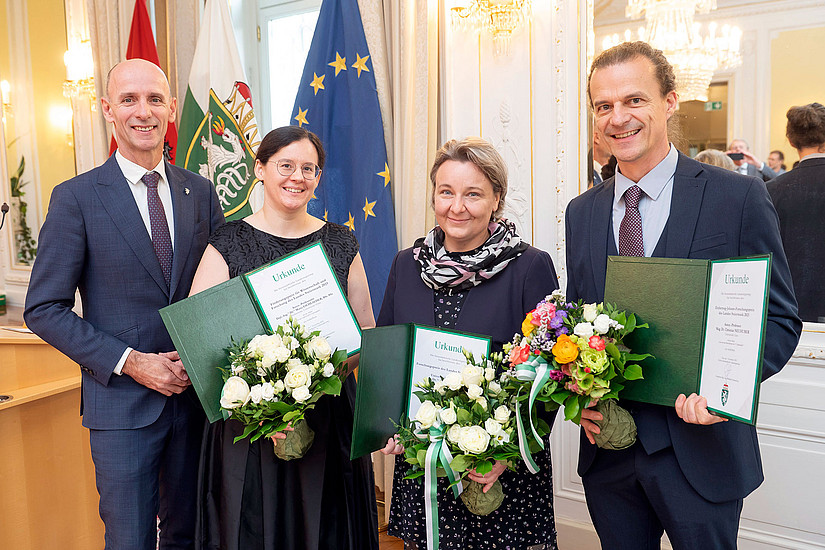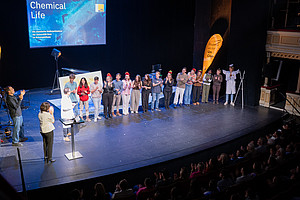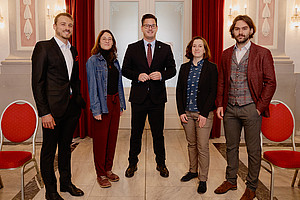“I am delighted about the awards presented by the Province of Styria to two outstanding researchers from the University of Graz. They once again underline the high quality and importance of research at our university. The spectrum ranges from new perspectives on historical developments to solutions for the major challenges in shaping the future,” says Rector Peter Riedler.
Revolutionary bio-plastics
It is a milestone that combines environmental protection and economic efficiency: Katalin Barta Weissert from the Department of Chemistry at the University of Graz and her team have developed a fully recyclable, bio-based epoxy resin. The innovation has far-reaching implications, as epoxy plastics is used as a very robust lightweight material in numerous products, including skateboard ramps, aeroplanes, boats, cars and wind turbines. However, commercially available epoxy products are based on petroleum and are not currently recyclable. Now, researchers at the University of Graz have developed an epoxy resin thermoset that is made exclusively from renewable raw materials. In addition, the material dissolves easily in methanol, allowing all the original building blocks to be recovered.
Read more in the article “University of Graz develops sustainable and recyclable bio-plastics”
Graz, city of theatre
Theatre enjoyed great popularity during the Baroque period. Christian Neuhuber from the Department of German Studies at the University of Graz researched the significance of Graz in connection with professional theatre in the 17th century. Based on years of research in numerous archives in Austria and abroad, he was able to paint a completely new picture of the Styrian theatre landscape during the Baroque period. English theatre was admired in the Inner Austrian residential city of Graz earlier than in Vienna. Many of the most important German-speaking ensembles of their time entertained Styrian audiences, and even some Italian stars launched their international careers from the city on the Mur.
More on this in the book Graz und das Berufstheater im 17. Jahrhundert




